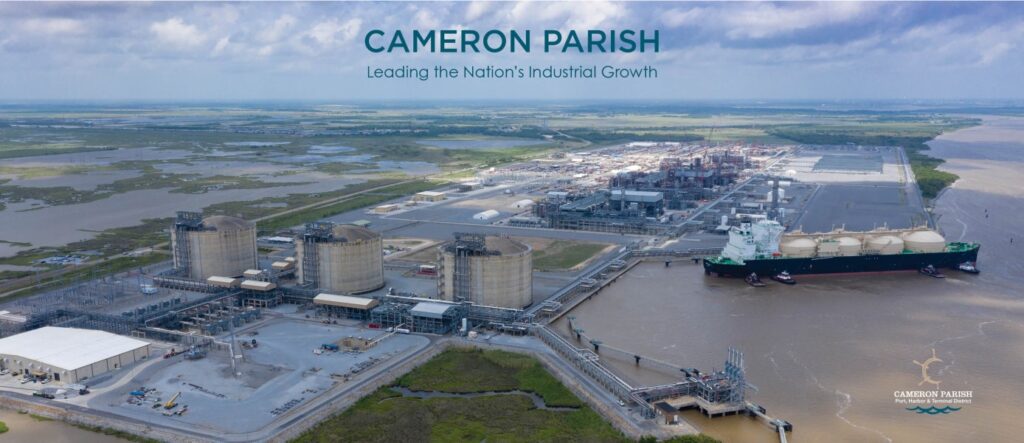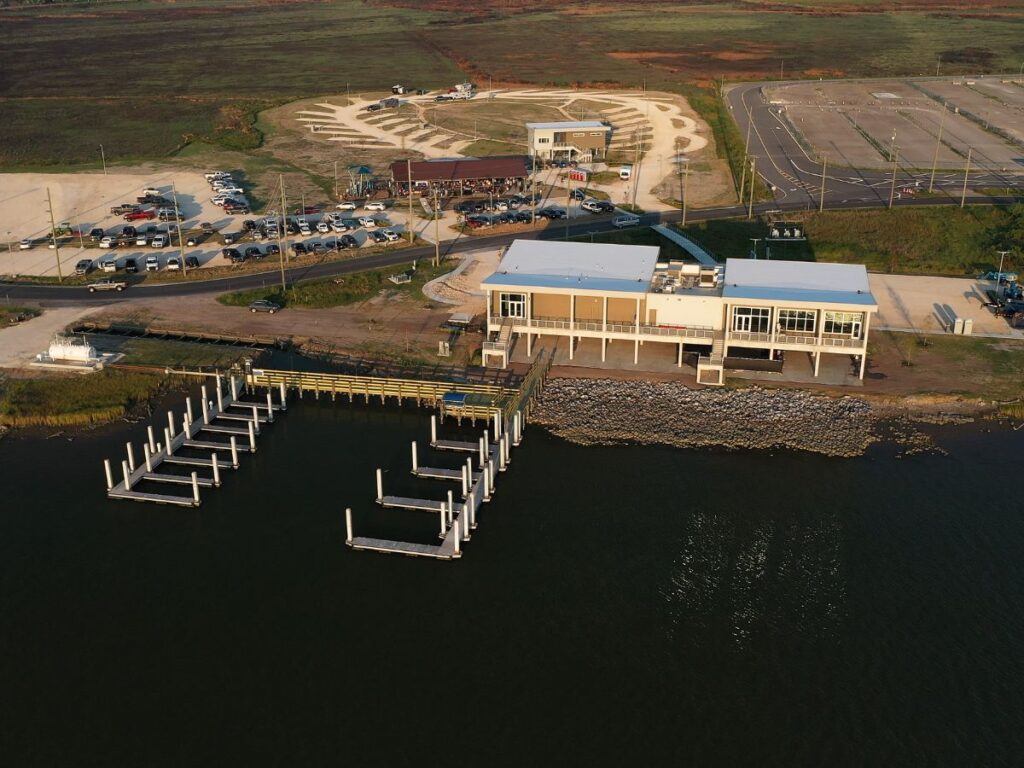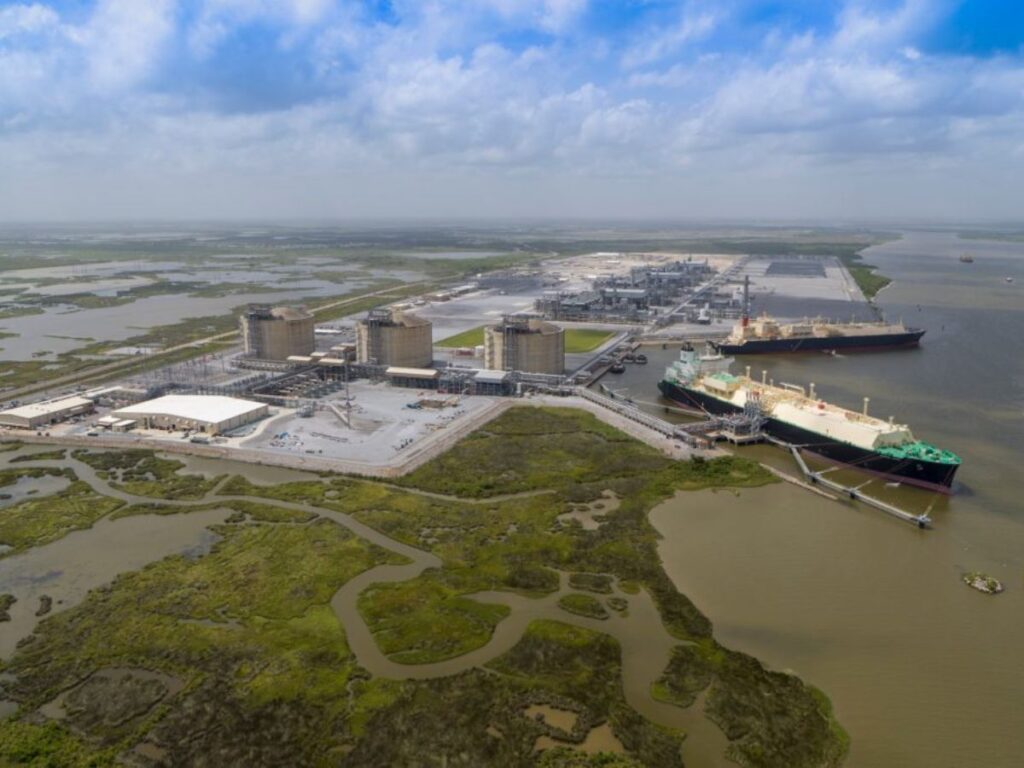The debate over the future of Liquefied Natural Gas expansion in America has intensified and Southwest Louisiana and Southeast Texas are the focal points.
Four proposed LNG projects in our region are on hold because the Biden Administration wants the Department of Energy to review its process in deciding if a company will be allowed to export LNG to non-Free Trade Agreement countries.
Here are the four projects with pending applications to DOE:
- Magnolia LNG (approved by FERC – Federal Energy Regulatory Commission — and waiting for DOE approval)
- Commonwealth LNG (approved by FERC and waiting for DOE approval)
- Venture Global CP Two (awaiting FERC approval and DOE approval)
- Lake Charles LNG (reapplying for DOE approval)
- Sempra Infrastructure – Port Arthur, Texas LNG Phase TWO (FERC approved and waiting for DOE approval)
Environmentalists applied lots of pressure and influenced the Biden Administration’s decision.
The LNG companies, potential employees, and contractors along with the regional business community are in an uncomfortable position. It is the worst kind of wait and see because the November election may impact if DOE allows the companies to export their product.
Simply put, the environmentalists argue that LNG is not clean energy.
Now, we are all in an information battle.
Information advocating for LNG expansion vs information supporting the industry’s dismantling.
Is LNG Clean Energy?
According to Natural Gas Intelligence, “Natural gas emits about 40% less carbon dioxide than coal and roughly 20% less CO2 than oil. LNG is viewed as a cleaner alternative to fuel oil and coal and could help the environment by displacing the commodities in places like Asia where they’re more widely used for energy. In this sense it is an alternative energy that can be utilized as the world transitions to cleaner gases and renewable energy technologies that have far lower emissions profiles than natural gas.”
Mark Radka, head of the United Nations Environmental Program’s Energy and Climate Branch notes that natural gas has a place in national and international energy policy.
“Natural gas is a cleaner fuel in the sense that burning it produces fewer conventional air pollutants, like sulfur dioxide and particulates, than burning coal or oil. How much more depends on the characteristics of the fuel, the combustion technology, how well equipment is maintained and operated, and other factors. In general, burning natural gas also produces less carbon dioxide per unit of energy – about half compared to the best coal technology – and by this measure it’s better from a climate perspective,” he stated in an article (https://www.unep.org/news-and-stories/story/natural-gas-really-bridge-fuel-world-needs).
Environmentalists argue that the high amounts of methane — a prime issue they have against using natural gas – leak from natural gas facilities.
“But provided that methane emissions are well managed, it’s not as problematic in terms of planetary warming as coal or oil,” Radka stated.
He also stated that, “But many companies are willing to act even without regulatory pressure. We’re working with about LNG.
Is LNG Clean Energy?
According to Natural Gas Intelligence, “Natural gas emits about 40% less carbon dioxide than coal and roughly 20% less CO2 than oil. LNG is viewed as a cleaner alternative to fuel oil and coal and could help the environment by displacing the commodities in places like Asia where they’re more widely used for energy. In this sense it is an alternative energy that can be utilized as the world transitions to cleaner gases and renewable energy technologies that have far lower emissions profiles than natural gas.”
Mark Radka, head of the United Nations Environmental Program’s Energy and Climate Branch notes that natural gas has a place in national and international energy policy.
“Natural gas is a cleaner fuel in the sense that burning it produces fewer conventional air pollutants, like sulfur dioxide and particulates, than burning coal or oil. How much more depends on the characteristics of the fuel, the combustion technology, how well equipment is maintained and operated, and other factors. In general, burning natural gas also produces less carbon dioxide per unit of energy – about half compared to the best coal technology – and by this measure it’s better from a climate perspective,” he stated in an article (https://www.unep.org/news-and-stories/story/natural-gas-really-bridge-fuel-world-needs).
Environmentalists argue that the high amounts of methane — a prime issue they have against using natural gas – leak from natural gas facilities.
“But provided that methane emissions are well managed, it’s not as problematic in terms of planetary warming as coal or oil,” Radka stated.
He also stated that, “But many companies are willing to act even without regulatory pressure. We’re working with many companies that have committed to setting 2025 methane reduction targets, measuring their methane emissions, taking steps to reduce these, and reporting on the results. Detection technologies are improving, and UNEP is, in parallel working with partners to provide open and transparent information on emissions. Methane leaks are costly, so from an economic perspective companies have an interest in reducing leaks.”
What the public needs to keep in mind is that on the federal level, LNG companies must get projects approved by the Federal Energy Regulatory Commission (FERC), the DOE process is the last hurdle.
The FERC process includes a rigorous application process that includes environmental assessment and air quality analyses. During the process, public input is sought.
Our four LNG projects on hold, received FERC clearance…environmental concerns were examined and addressed!





